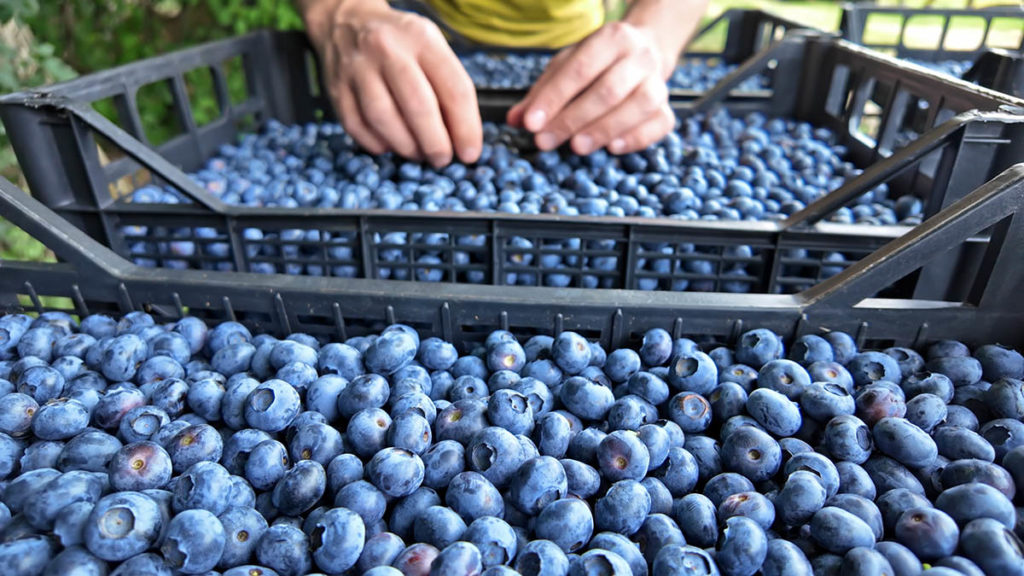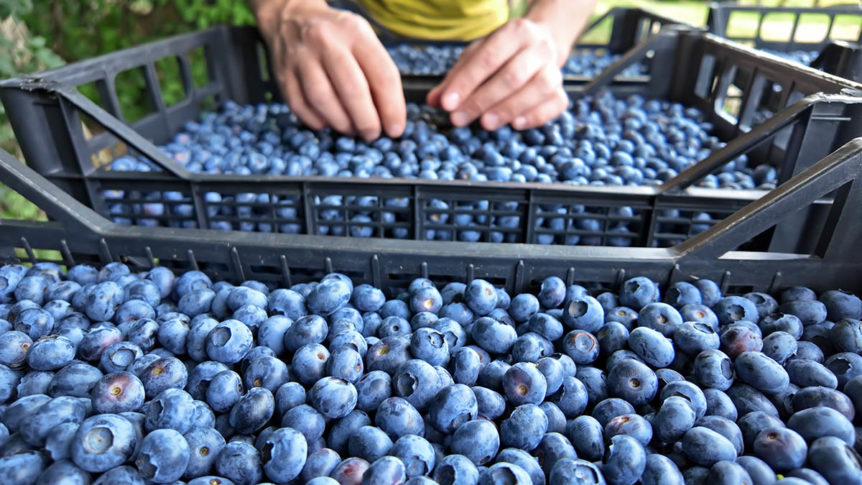
By Clint Thompson
For some specialty crop producers, production is no longer confined to a specific season. If growers are to achieve financial success and stay sustainable for the foreseeable future, they need programs like the Value-Addition Institute for Business Expansion (VIBE) to help extend their farming operations to include new products via process development.
The University of Georgia (UGA) launched VIBE this year thanks to a three-year, $1.5 million grant from the U.S. Department of Agriculture’s Agriculture Innovation Center. Kaityln Casulli, College of Agricultural and Environmental Sciences assistant professor of food science and technology, is one of the leaders of VIBE and discussed its significance.
“We applied for the grant with the intention that the center would provide product and process development services to farmers and value-added producers in rural Georgia,” she said. “This would help them either divert some of their food that would be otherwise intended for disposal because it was not suitable for fresh market, or maybe there was additional produce that they didn’t harvest because they didn’t have use for it or didn’t have the labor to justify harvesting it.”
According to Casulli, VIBE is aimed at leading farmers into additional revenue streams while providing long-term security. “If they have a bad crop one year or if they want to make some money in the offseason, value-added processing would be a pathway to do that,” she says.
“Georgia farmers do an incredible job producing a raw product, but there is significant room to expand processing and value-added opportunities in our state,” said Georgia Agriculture Comissioner Tyler Harper in a release annoucing the program. “The new VIBE center at the University of Georgia will help us bridge that gap — bringing new investment and jobs to Georgia and helping return more of the retail dollar back to the family farm through new, value-added opportunities.”
Year-Round Revenue
Many specialty crops can, if stored properly, be processed, sold later and still retain the fresh quality that consumers seek. Casulli cites blueberries as an example. If growers preserved blueberries that were not suitable for a fresh sale, they can be processed into jams, jellies and juices, creating a year-round revenue stream that didn’t exist before.
“When you preserve the food, you can keep it around for a lot longer. You can sell something in December that would ordinarily be harvested in June or July. Depending on what you do to it, it can still have that fresh taste and nutritional content that you’re looking for,” Casulli said.
Not all specialty crops that are grown are ultimately harvested. Fruits and vegetables, like blueberries and tomatoes, may have a slight blemish as a result of a pest or disease and may not be suitable to sell to consumers. But they can still be consumed. An alternative processing format would be the ideal way to compensate for potential lost revenue.
“In Extension, we regularly get requests from people who want to go into value-added processing,” Casulli said. “It’s not usually the farmer audience, so this is a bit of a new venture for my program. We do hear from people, especially the smaller farmers who have a presence at farmers’ markets and maybe want to get into something different and produce a jelly or jam or something like that.”
Reducing Food Waste
Casulli is partnering with Kevin Mis Solval, UGA College of Agricultural and Environmental Sciences food engineer, and Carla Schwan, UGA food safety specialist, in leading the VIBE program.
The program’s most significant benefit is helping reduce food waste on the farm. Typically, what is not sold is usually discarded. If growers can convert what would have been waste into alternate sources of revenue, it would be a win-win for all involved.
“My colleagues and I in value-added processing say, ‘Don’t throw that away. We could use it,’” Casulli said. “I think a big piece of this is just education for farmers. What can we do and how can we think about this in a different way? How can we get creative and cut down on food loss and food waste?
“Another piece of this could be if a farmer doesn’t want to get into the value-added processing for whatever reason, how can we connect those already doing value-added processing to the farmer so that way we can keep it local and not have to source from other states?” Casulli said. “It gives the farmer an additional revenue stream that he or she wouldn’t ordinarily have. For example, if they were to sell off some of their produce that doesn’t look nice but could be fine if it’s in a jelly or jam, that could give them some additional income.”
VIBE is available to provide direct technical support on product and process development to Georgia growers. The program started in January, and funding will cease on Dec. 31, 2026. Contact Casulli at kaitlyn.casulli@uga.edu for more information.










